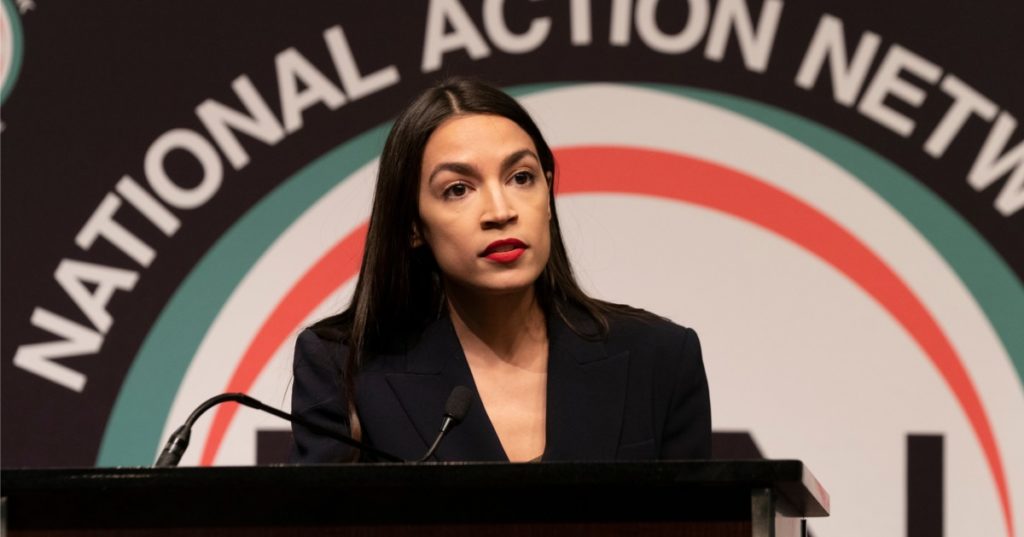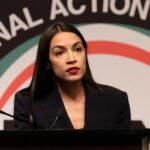


In a shift shaking up political dynamics, some of New York's major unions are throwing their weight behind Republican incumbents in key House races, potentially bolstering the GOP's grip on the chamber.
The New York Post reported that despite backing from the New York State AFL-CIO for Democratic contenders, individual unions are prioritizing candidates' labor platforms over party loyalty.
Historically, labor unions have largely aligned with Democratic candidates, but current endorsements suggest a movement toward unconventional allegiances.
For instance, the National Transport Workers Union, under the leadership of John Samuelsen, is supporting two Republican incumbents: Mike Lawler of the 17th District and Marc Molinaro of the 18th District, both in the Hudson Valley.
Lawler has secured an impressive 37 labor endorsements, drawing from law enforcement and construction sectors. Among his supporters are significant AFL-CIO affiliates, in addition to firefighters, carpenters, steamfitters, plumbers, electrical workers, and operating engineers. Such broad-based support could be pivotal in a closely contested election.
Likewise, Marc Molinaro has achieved 35 labor endorsements, with particular strength in the building trades and law enforcement communities. Previously, the International Brotherhood of Electrical Workers Local 43 favored his opponent but has now switched allegiances to support Molinaro, illustrating the changing tides in union support.
Another GOP member, Anthony D’Esposito from Long Island's 4th District, enjoys backing from the American Federation of State, County, and Municipal Employees and the Civil Service Employees Association. His presence among their endorsed candidates further signals a potential shift in union support.
An Emerson College poll of the race between Lawler and his opponent, Democrat Mondaire Jones, shows a slim margin, highlighting the competitive nature of these elections. Jones holds distinct union endorsements from sectors such as teachers and health care, including 1199 SEIU and the New York State Nurses Association, along with support from the AFL-CIO.
John Samuelsen of the National Transport Workers Union expressed that Democrats are not automatically entitled to union endorsements, indicating a shift in expectations among union leaders. “Democrats have to earn an endorsement,” he stated, articulating a demand for meaningful labor policy support over party allegiance.
Lawler's perspective reflects this sentiment, noting that union rank-and-file members' views have shifted, influencing endorsements. “What you’re seeing within the rank and file of these unions is that the membership has moved to the right,” Lawler said. He emphasized the Republican party's potential to appeal to working families, advocating for policies that support good-paying jobs.
Molinaro emphasized his longstanding relationship with tradespeople, forged over 15 years, as a critical factor in gaining their support. His rapport with union members has culminated in endorsements that reflect policy alignment rather than mere party loyalty.
Al Marzullo, emphasizing a focus on labor issues over political affiliation, stated that endorsements hinge on candidates' support for labor interests. “We don’t care if you’ve got an R or a D or an I in front of your name,” said Marzullo, asserting the centrality of labor issues in deciding endorsements.
The tone of the campaign between Lawler and Jones includes personal remarks, with Samuelsen openly critical of Jones, calling him “an entitled, spoiled, nervy bastard.” In response, Jones' representative defended his pro-labor record, citing his role in passing significant legislation like the American Rescue Plan Act and the Bipartisan Infrastructure Law.
Jones' representative countered Samuelsen's personal attacks by focusing on his legislative achievements, including key acts that contributed positively to the labor sector, emphasizing job preservation within unions.
These endorsements reveal a fascinating realignment in political support within New York, indicating that labor unions are increasingly willing to cross party lines if it aligns with their priorities. As the elections approach, the influence of these endorsements could play a significant role in determining the outcomes of these tightly contested races.
Ultimately, this evolving landscape underscores the importance of issues over traditional party lines, with unions prioritizing candidates who demonstrably support labor concerns, regardless of political affiliation.



